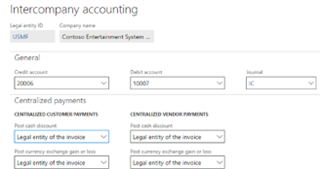Content

Compliance audits can help determine whether or not your business is compliant with paying workers’ compensation or shareholder distributions. And, they can help determine if your business is compliant with IRS regulations. If you are not organized or don’t keep thorough records, your audits https://online-accounting.net/ might take more time to complete. Or, you might have a third party audit your information (e.g., IRS audits). Additional rules for the audits of publicly traded companies are made by the Public Company Accounting Oversight Board , which was established as a result of SOX in 2002.
The results of an external audit assure third parties that the financials of the company are correct and secure. Regularly scheduled internal audits are essential in a wide range of industries. With them, business owners can figure out pain points in operations efficiently, allowing them to identify potential problems in the workflow before they become evident in an external audit. Regular internal audits also provide risk management and safeguard against potential fraud, waste, or financial abuse in your business. Address the internal control environment of automated information processing systems and how these systems are used. IS Audits typically evaluate system input, output and processing controls, backup and recovery plans, and system security, as well as computer facility reviews.
Internal audit
Give an example of an issue that each type of audit might address, and indicate how frequently such audits are conducted by the IRS. List three audit procedures that are primarily for the detection of fraud, and state the type of fraud the procedure is meant to uncover. Name the three Types of audits in order of most common to least common and briefly describe what each type of examination entails.
Consulting -This is an Internal Auditing activity normally provided in response to a request from management. Consulting projects may range from formal enagagements, defined by written agreements, to advisory activities, such as participating in standing or temporary management committees or project teams. It is deesigned to provide expertise in the resolution of internal control issues. Consulting may involve answering questions, developing solutions to problems, recommending courses of action and/or formulating an opinion. Consulting may also involve the review of proposed procedures for internal control content. While certain internal audits focus on only one of the categories described below, many of our audits incorporate elements of each category. Each of our audits incorporates a risk assessment and often results in suggestions to more effectively manage the risks.
No matter the audit type, preparation is key
And, external auditors must follow generally accepted auditing standards . An audit can help identify errors, improve compliance, and protect the business from fraud. An internal auditor or a third-party auditor – like a CPA – can perform payroll audits. This type of audit can highlight opportunities for improvement within plan operations, efficiencies, controls, and how well the plan complies with select regulations. Independent public accountants are the only professionals qualified to perform employee benefit plan audits. If an auditor is evaluating program effectiveness, he may need to audit internal controls too.
- Other methods, such as a desk or document review audit, may be employed independently or in support of the three general types of audits.
- With just a few taps of your screen, you can show your auditor all the information they’ll need.
- This type of quality audit inspects whether a particular product or service complies with customer or performance requirements.
- An operational audit can include elements of a compliance audit, a financial audit and an IT audit.